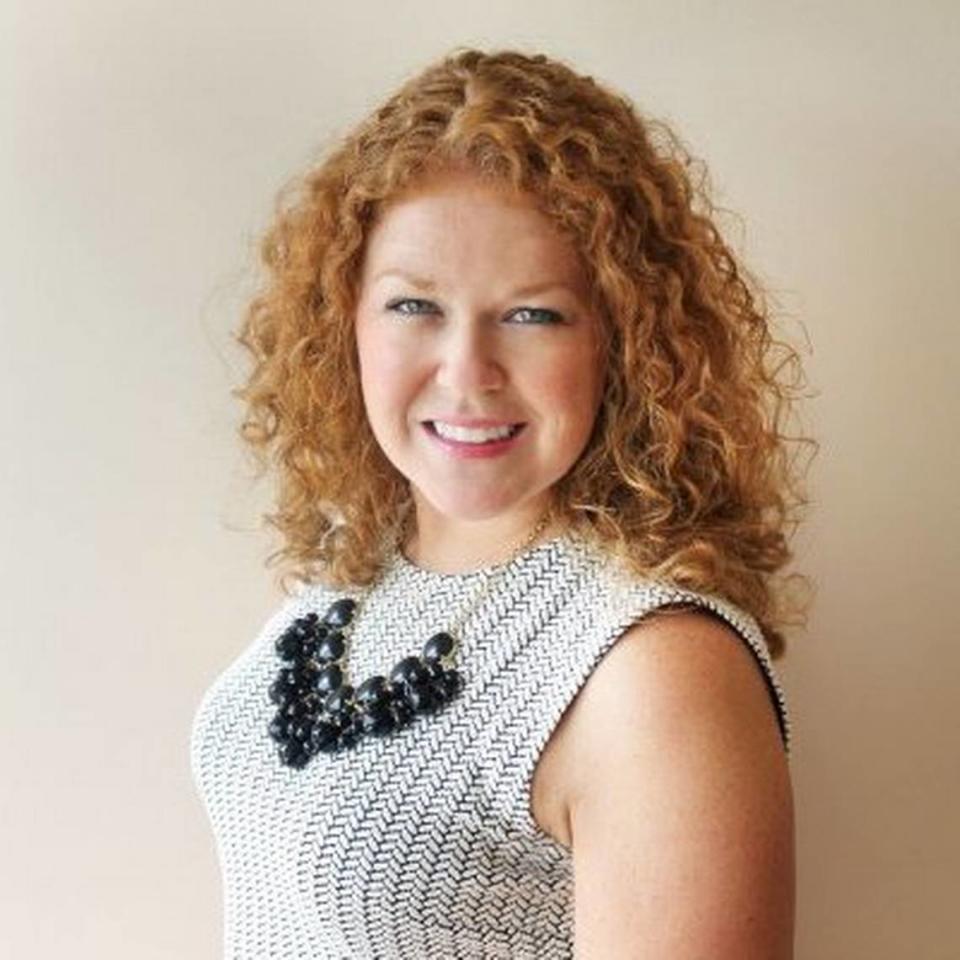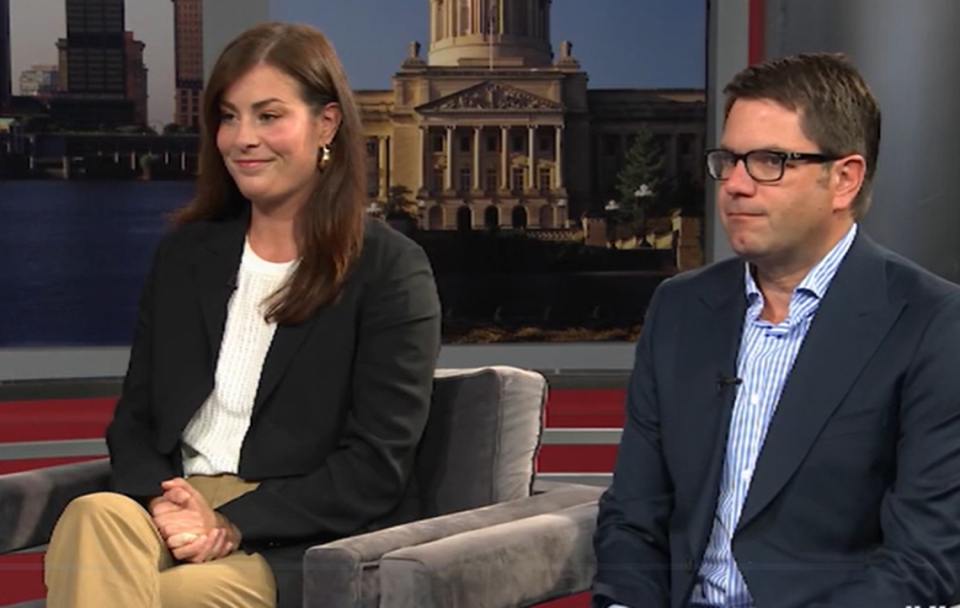Who are power brokers in Frankfort? Meet those who shape campaigns, candidates & statewide agenda
- Oops!Something went wrong.Please try again later.
- Oops!Something went wrong.Please try again later.
The pursuits of the commonwealth’s elected leaders are well-documented.
From Sen. Mitch McConnell’s role in reshaping the U.S. Supreme Court and Gov. Andy Beshear’s political appeal to statehouse Republicans’ sweeping reforms since taking control of the legislative branch – these actions and trends have received significant public praise and scrutiny.
But none of that happens without dozens of staffers and operatives whose names hardly crack public consciousness. They’re general consultants whose names never appear on ballots and often go on the offensive when candidates are hesitant to do so.
They’re communicators who shape political narratives and party leaders who recruit candidates and poke at the opposition.
While elected officials typically are those who grab headlines and voters’ attention, there is a small army in and around Frankfort of individuals — some embrace the moniker of politicos — who work daily on the tug-of-war unfolding between the two dominant parties and even internal factions within those same parties.
Call them power brokers, operatives, key advisers or the juice that keeps Kentucky’s political and legislative wheels turning. Whatever the name, they play an undeniably important role in Frankfort: An influential ecosystem across the political spectrum that support politicians, shape legislation and donate money to help gain favor.
The Herald-Leader spent two months interviewing 15 people who navigate the state’s political universe and have a big say in what unfolds in Frankfort.
Here are some of the biggest players in Kentucky politics, many of whom you’ve never heard about, and why they matter.
Sign up for our Bluegrass Politics Newsletter
A must-read newsletter for political junkies across the Bluegrass State with reporting and analysis from the Lexington Herald-Leader. Never miss a story! Sign up for our Bluegrass Politics newsletter to connect with our reporting team and get behind-the-scenes insights, plus previews of the biggest stories.
Brad Shattuck, GOP political consultant
Strategic Impact could be the name of just about any company. But despite its nondescript name and its founder’s relatively low profile, it’s one of the most politically important consulting firms in the state.
The founder is Brad Shattuck, 43, a Republican strategist who cut his teeth on early Kentucky campaigns – Ernie Fletcher’s defense of the 6th Congressional District and former GOP Secretary of State Trey Grayson’s reclamation of the office – and now serves candidates in-state, out-of-state and out-of-country.
Strategic Impact’s website lists offices in Lexington, Chicago, Birmingham and “The Swamp (Washington, D.C.).”
More recently in Kentucky, Shattuck has worked on 2015 and 2023 gubernatorial campaigns for now-congressman James Comer and Kelly Craft; State Treasurer Mark Metcalf’s successful 2023 primary; congressional campaigns for Comer and 6th District Congressman Andy Barr; along with several state legislative campaigns.
This presidential cycle, Shattuck worked for a political action committee supporting Republican Florida Gov. Ron DeSantis,
Shattuck said he’s drawn to the “blood sport” aspect of politics as a former track athlete. It scratched the competitive itch while also serving the American conservative project.
This manifests in the brand that Shattuck has built in Kentucky: A willingness to go on the offensive, or, as he calls it, be “very freakin’ aggressive.”
“There’s a lot of candidates that want to get out there and talk about how great the roses smell but they don’t want to take the fight to their opponent. At the end of the day, I believe that every election is a choice,” Shattuck said.

He said he knows his line of work induces groans from many weary of negativity in politics.
“I hear that all the time. Then you watch the polls and you see candidates who have just run positive TV or mail all of the sudden start falling. While people say they bemoan negative attacks, they’re very effective,” he said.
What does Shattuck think about the governor’s office, the one position that has eluded consistent Republican control in Kentucky? He said it’s not going to be easy, but the GOP shouldn’t fall over itself to try and sway swing voters in a state that overwhelmingly elects Republicans for other state offices.
“They have to nominate a true conservative. This idea that we have to tack to the middle is garbage,” he said.
Blair Haydon, Emerge Kentucky executive director
Blair Haydon leads Emerge Kentucky as its executive director. It’s the state branch of an organization dedicated to training Democratic women to run for office.
Originally from Springfield with a background in social work, Haydon, 42, now calls Lexington home. She began leading the organization “right before the presidential when we all thought Hillary was going to win” and break the presidential “glass ceiling.”
She served in that role until becoming Democratic Senate candidate Amy McGrath’s political director – she later retook the role at the start of 2022.
Emerge Kentucky has trained 313 women to run for office in the state. Of those that have run, 46 are currently holding office. Nine alums hold office in the General Assembly and one has won statewide twice: Lt. Gov. Jacqueline Coleman.
While Democrats’ numbers in Frankfort have fallen dramatically in recent years, the proportion of those lawmakers who are women is way up since Emerge launched in 2009. Fifteen of the House’s 20 Democratic representatives are women; four of the Senate’s seven Democrats are women.

While Haydon was enthused to see Beshear’s big win in 2023, she sees two major flaws that led Democrats to where they are today in the General Assembly.
“Democrats lost touch with everyday folks and grassroots efforts,” she said.
“We needed to get that back and meet people where they were, to show people that we’re the party that wants to show up for them and help them. And we weren’t building the pipeline – we weren’t bringing younger Democrats into the fold and we weren’t building the bench.”
With the Democratic brand falling out of favor in most regions of Kentucky outside Lexington and Louisville, Haydon said that a current area for growth for Emerge-trained candidates is positions that don’t require one to put a “D” by their name.
Nonpartisan offices on the local level is where we’re winning. And I would like to tell you that it’s our suburbs that are growing up right outside of Lexington and Jefferson, but it’s a combination. Some of these small, rural areas are seeing some wins,” Haydon said.
“What it boils down to is who they are in the community.”
Morgan Eaves, Kentucky Democratic Party executive director
Morgan Eaves attended Ole Miss University for her undergraduate studies. She was there in 2008 when the university hosted the first debate between Democratic President Barack Obama, fighting to become the first Black president, and Republican Senator John McCain.
“The KKK protested that debate, and Obama’s presence on campus, for several weeks,” she said.
“It gave me a pretty good reality check about the state of politics in our country, but also it had the opposite effect they intended: It lit a spark about being civically involved and how important it was to ensure that people like that weren’t defining our political system.”
Now, the 35-year-old is helping to define Kentucky Democrats’ message in a state that’s handed them a lot of legislative losses. She was just named executive director of the state party two weeks ago.
Coming from the world of state legislatures – her most recent career stops include nationwide statehouse lobbying and serving as a legislative liaison in the Beshear administration – she said the party will have a “renewed focus” on gaining ground in that arena.
“It’s making sure we’re reinforcing that messaging and getting it out to every corner of the state so that everybody’s informed and come election time, they can hold people accountable if they don’t like their decisions,” Eaves said.

She knows the trials of candidacy firsthand. Eaves was elected to Richmond City Council in 2016 and then fell just short of a seat in the House of Representatives, losing to Rep. Deanna Frazier Gordon, R-Richmond, in 2018 by just 24 votes. Shattuck was a consultant on Gordon’s campaign.
Eaves did not join in time to help coordinate Democratic recruitment for the 2024 cycle, but said she’ll also focus on recruitment efforts for all districts.
What would Eaves tell a Democratic pessimist? Republicans used to be in similarly dire straits.
“They’re only where they are today because they didn’t give up. If we want to get back, we have to adopt the mindset of this as just a setback,” Eaves said. “It’s not gonna happen overnight. It’s not gonna happen in a year or two. It’s a long-term plan that they’ve been really successful at executing, and we need to have that same faith and fidelity.”
Eaves’ GOP counterpart, Republican Party of Kentucky Executive Director Sarah Van Wallaghen, is another influential player in Frankfort. However, she did not respond to a request to be interviewed.
Tres Watson, Republican communicator
One day, Tres Watson is a communicator for hire in Frankfort. The other, he’s a talking head on Kentucky Educational Television arguing for state Republican priorities.
Another, he’s running a political action committee that helps more moderate Kentucky Republicans in primaries. The next, he’s an insightful, and occasionally potty-mouthed political podcast host.
A former spokesperson for the state GOP, Watson, 45, has remained a voice for Republicans in the state since leaving the party.
Watson is a close political ally of former commissioner of agriculture Ryan Quarles (who’s now president of the Kentucky Community and Technical College system). He counts running Quarles’ 2015 race, which featured a tight primary, and Sen. Brandon Smith’s, R-Hazard, 2008 flip of a once-deep blue Eastern Kentucky district as top political accomplishments.
Today, Watson is less involved in direct campaigns and more in shaping the overall narrative.
His “Kentucky Politics Weekly” podcast (co-hosted by progressive and conservative leaning husband-wife lobbying partners Jared Smith and Abby Piper) is primarily a rundown of the week’s news with some commentary from Frankfort veterans.
But Watson sometimes uses the platform to rail against members of his own party.
“I don’t want to play traffic cop and try and try to say who is or isn’t a Republican. But I also want to make sure that the party stays the big tent party, and that the people who are involved at the highest levels are in it for the right reasons. I feel like politics on both sides of the aisle has been infested by grift,” Watson said.
This desire for stamping out “grift” in his own party is part of what led Watson to form the political action committee Common Sense Kentucky. The group raised $80,000 last state legislative cycle, with half coming from what some would consider an unlikely funder for a Republican PAC: The political arm of the Jefferson County Teachers Association.
He predicted that as the Republican party maintains its grip on legislative power in Kentucky, more groups on the political left and center will realize they ought to play ball in GOP primaries.
“Two years ago, when I was calling around trying to raise money, the common refrain you heard was, ‘Oh, we don’t participate in primaries.’ I tried to warn everybody back then if you’re not involved in the primary, you’re not involved, because that’s where these elections are going to be decided for the foreseeable future,” Watson said.
“It’s about the control of the General Assembly, who’s in what leadership position and who’s in charge of moving the bills.”

